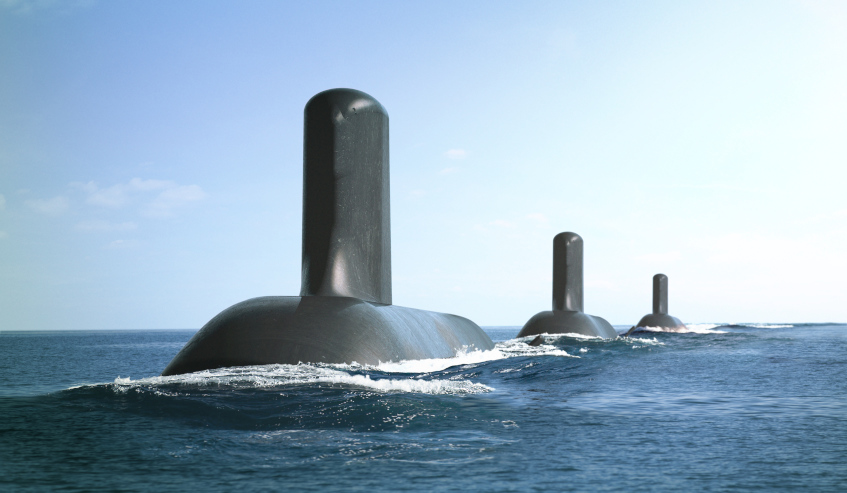Australia’s Classified Information Agreement with France and the Future Submarine Program (FSP) were under the spotlight yesterday when they were examined by the joint standing committee on treaties.
Cyber security and the risk of confidential defence information being shared with foreign states and countries were topics of concern for the committee, with current and future frameworks for security requirements being examined.
The FSP Framework Agreement is not the agreement to design or build the Future Submarines, but an agreement that establishes a framework for co-operation to support the delivery of the FSP.
Committee chair Stuart Robert raised the issue of the "malicious insider" jeopardising Australian defence and national security, referring to the DCNS' massive leak of documents last year and the infamous Edward Snowden Wikileaks scandal.
Last year, the French shipbuilding company suffered a huge leak of secret documents, with over 22,000 pages leaked, pages that detailed the entire secret combat capability of the six Scorpène Class submarines that DCNS designed for the Indian Navy.
A variant of the same French-designed Scorpène is also used by the navies of Malaysia, Chile and, from 2018, Brazil.
The committee also expressed their concern about the difference between Australian and French government's classification of information as confidential or secret.
Currently, and universally, each country has a different classification of information for confidential, secret or top secret information, a risk that the committee identified as potentially problematic for the Future Submarine SEA 5000 project.
First assistant secretary for the identity and intelligence division in the Attorney-General's office Anna Harmer expressed her confidence in the agreement.
"There is a requirement to the treaty that the information be protected to a standard at least equivalent to the protection afforded under the respective bilateral laws or policies," Harmer said.
Maximising Australian industry and worker involvement was also analysed, with the committee trying to address whether French workers would be preferenced over Australian workers.
Robert said, "The Future Submarine Program is intended to maximise Australian industry involvement, and we need to make sure these agreements do not unfairly discriminate against, or impose extra burdens on, Australian companies."
Robert also stated the lengthy process of applying for security clearances has been a problem for a business competing for a government work.
"The committee believes this is the first agreement where Australia will be obliged to recognise the security clearance granted to a person by another country when in Australia. The committee will look to ensure that the Australian and French vetting practices are robust enough to protect Australia’s classified information," Robert said.
"The recognition of security clearances issued by France could disadvantage Australian contractors who do not hold current Australian security clearances. The committee has heard that the process of applying for security clearances, particularly the need to be sponsored by a government agency, is an obstacle for Australian businesses in bidding for work."
Yesterday's examination follows previous hearings into Australia’s Future Submarine Program with France, which reviewed the Framework Agreement for the FSP and important aspects of the program including the transfer of technology, Australia's sovereign operation, local industry engagement, research and development, and the governance and performance of the contract with DCNS.
The contract for the design and construction of the Future Submarines was awarded to the French government-owned company DCNS in April 2016 and signed in September 2016.
The government confirmed in April 2016 that the submarine fleet will be constructed in Adelaide.
DCNS has stated that over 90 per cent of the build will occur in Australia.
The French company was selected by the Australian government for the contract over German TKMS and Japanese Mitsubishi Heavy Industries and Kawasaki Shipbuilding Corporation offerings.
DCNS has stated that the Shortfin Barracuda pushes submarine stealth capabilities into a new realm, using pump-jet propulsion instead of the traditional propeller. To add to its stealth capabilities, hydroplanes on the submarine will retract to reduce drag and noise.






